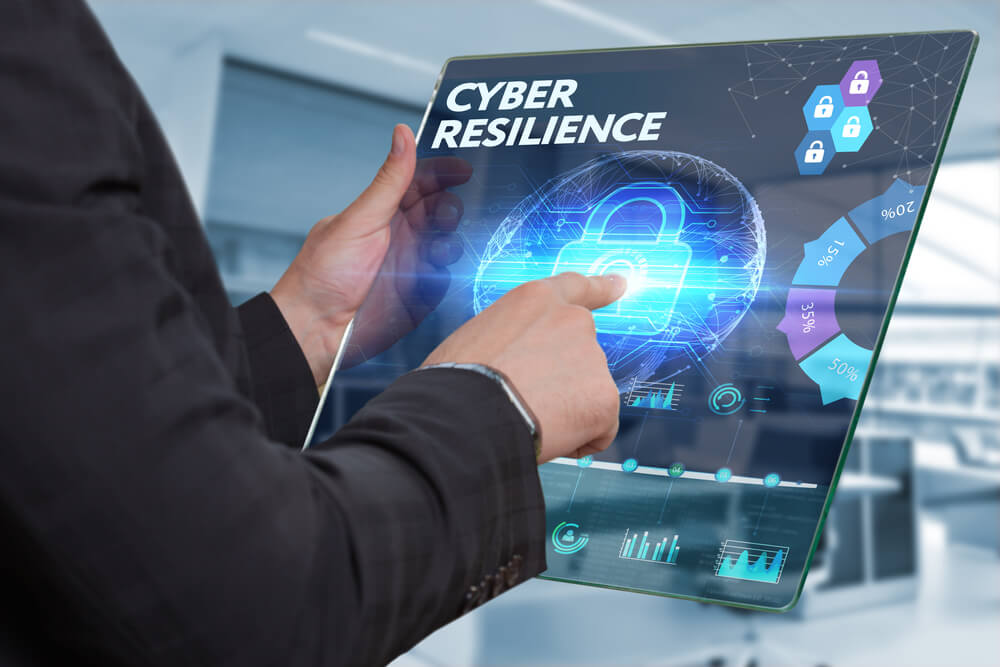According to a recent
report, the FBI's Cyber Division cautioned that the number of cybersecurity complaints it received daily increased to about 4000 in the COVID-19 world from 1000 before the pandemic. More businesses are conducting business remotely, which attracts cybercriminals who use advanced tactics to remotely breach information systems and steal personal data or interrupt business operations for a ransom.
Only cyber resilient COVID-19 era enterprises can effectively protect their employees, customers, and business data from today's much more sophisticated cyberattacks. Read on to learn more about advanced IT security threats and what you can do to protect your business as you adapt to a COVID-19 world.
What are COVID-19-Themed Cyber Threats?
As businesses change, so do the many different tactics employed by cybercriminals, including specific COVID-19 themed cyberattacks. These are attempts to breach IT security or steal personal data by initiating COVID-19-themed correspondence via tools like email or SMS. Business IT systems and employees using remote collaboration software are usually a lucrative target for such attacks.
The most common COVID-themed cyberattacks include:
- Phishing: Company employees are tricked into supplying their personal information, including usernames and passwords. In most cases, they innocently click on an email or SMS link that leads to a spoofed online form where they enter their IT security credentials. Hackers steal that information right away.
- Ransomware: Here, the attacker sends harmful codes or scripts, usually concealed behind an attached email file or a link in the body of the email. By clicking the corrupted link or attachment, the target unknowingly downloads and installs the malicious program on their PC.
To stay ahead of modern-day hackers, you'll want to learn about their effective tricks and tactics. Examples include:
Crafty COVID-19 Messaging
Cybercriminals are using COVID-19 messaging as bait. For example, an attacker may attempt to exploit COVID-19 relief programs for small businesses by sending spoofed email messages to employees working for companies in need of such aid. It's easy to fall for such a trap if you expect some sort of financial relief from the government.
Email Spoofing
Another common tactic is the use of a fake email with forged letterhead and sender address. Hackers will choose a trusted name and send the target an email that, on a brief examination, appears to be from a reputable company.
COVID-19 Website Domains
Most hacking attempts require the target to click a specific link included in the email, text, or Whatsapp message. Clicking the link may redirect the user to a portal whose address includes COVID-19 or corona-related wording.
Remote Workforce Collaboration Software
Hundreds of millions of employees are working remotely from home due to COVID-19-related restrictions. Hackers know this and are targeting the IT tools that workers are currently using to access their employer's work platforms from home. VPNs are a common target for such attacks.
Vulnerable Business IT Systems
A recent Small Business Administration
survey found that 88% of small business operators believed that their business cybersecurity wasn't robust enough. That's alarming, especially for companies letting their employees work or communicate remotely via telephones, SMS, Whatsapp, and smartphones. Cybercriminals are targeting these vulnerabilities as tools for hacking.
Protections for Cyber Resilient COVID 19 Era EnterprisesÂ
COVID-19 world cyberattacks that result in the theft of your customer, enterprise, or employee data may expose your business to lawsuits and significant financial losses. Here are some of the ways to protect your company:
- Understand your cyber risks and train your staff on password security and phishing awareness.
- Update your software with the latest security fixes and install an up-to-date antivirus solution.
- Create an offsite backup for your data and files in case hackers seize control of your business software in a ransomware attack.
- Protect your business financially with cyber liability insurance.
Cyberattacks can still happen even to the most diligent companies. It is essential to ensure that you are covered, and your business is protected even if an attack is successful. Looking to buy business insurance in Ventura, CA? Â Contact the experts atÂ
John E. Peakes Insurance Agency today.


